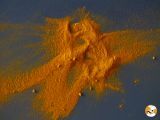Endometriosis and diet: keys to better symptom management

Endometriosis is a chronic disease affecting between 6% and 10% of women of childbearing age. Marked by severe pelvic pain and difficulty conceiving, it often requires specific treatments and lifestyle adjustments to relieve symptoms. Among natural solutions, diet plays a significant role in reducing inflammation and improving patients' quality of life. In this article, find out how to adapt your diet to live better with endometriosis!
What is endometriosis?
Endometriosis is an inflammatory gynecological condition in which endometrial cells (which normally develop in the uterus) are found outside the uterine cavity, on the ovaries, peritoneum and other pelvic organs. This phenomenon causes pain, chronic inflammation and sometimes fertility problems. This " estrogen-dependent " disease is influenced by hormones and biological processes that stimulate the formation of endometrial tissue outside the uterus.
Despite extensive research, the causes of endometriosis remain poorly understood, although genetic, environmental and hormonal factors appear to play a role. Treatments often include hormones or surgery, but recurrences are common, underlining the importance of complementary treatments, such as diet adjustment.
The link between diet and endometriosis
Numerous studies show that diet can influence the symptoms of endometriosis. In fact, certain nutrients act on inflammation and hormone levels, reducing pain and other effects of the disease. Adopting a diet rich in anti-inflammatory foods could provide relief for some patients.
Foods to help relieve endometriosis
- Fruits and vegetables: Eating plenty of green vegetables and fruit, especially citrus fruits and cruciferous vegetables (such as broccoli and cabbage), is associated with a reduction in symptoms. These foods are rich in fiber, antioxidants and anti-inflammatory compounds.
- Healthy fats: Omega-3s, found in oily fish (salmon, sardines), walnuts and certain vegetable oils (such as walnut and flaxseed oil), are recommended for reducing inflammation. Limit omega-6s, often found in sunflower and corn oils, which can aggravate inflammation.
- Whole grains: Cereals such as quinoa, brown rice and oats are rich in fiber and contribute to a better hormonal balance by facilitating the elimination of estrogen.
- Anti-inflammatory spices and herbs: Turmeric, ginger and rosemary have natural anti-inflammatory properties. Incorporating these spices into your daily diet could have a soothing effect.
Foods to avoid
- Dairy products and soy: Some dairy products can promote inflammation, and soy contains phytoestrogens that can potentially stimulate the proliferation of endometrial cells. However, their impact varies from one individual to another.
- Red meats and cold cuts: These foods are often rich in saturated fats and omega-6s, which can aggravate inflammation. Prefer white meats or vegetable proteins (legumes, tofu).
- Gluten and processed foods: Some women report an improvement in their symptoms when following a gluten-free diet. Also avoid processed foods, rich in refined sugars and additives, which can stimulate inflammation.
Food supplements for endometriosis
Food supplements can be beneficial as a complement to a balanced diet:
- Vitamin D: Known for its immunomodulatory effects, it may attenuate inflammation.
- Vitamins C and E: These antioxidants are useful for reducing markers of oxidative stress.
- Omega-3: In supplement form, omega-3s can boost anti-inflammatory effects, particularly in the case of low fish consumption.
You may be interested in:
 Adèle Peyches
Adèle Peyches


Comments